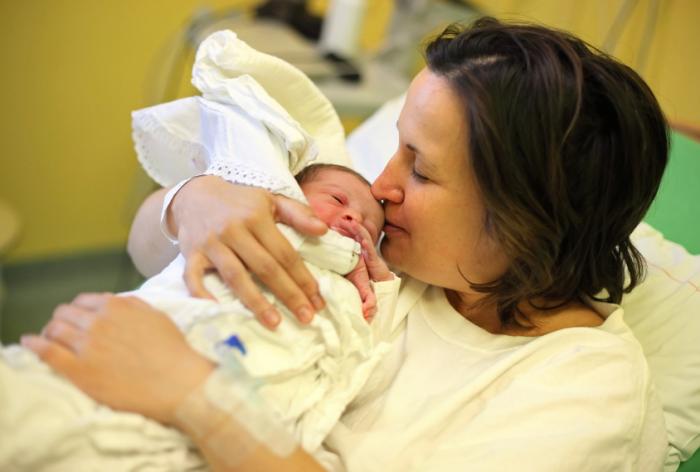After giving birth, many women opt to consume their placentas for multiple health benefits. A new review of studies investigating placenta consumption, however, has failed to uncover any scientific evidence for these benefits, or that the practice is risk-free.
The study, published in Archives of Women's Mental Health involved a review of 10 published research studies on placentophagy - the practice of consuming placentas after childbirth. Four of these were human studies and six were animal studies deemed relevant to human practice.
During pregnancy, the placenta develops within the uterus to provide oxygen and nutrients for the baby and to remove waste products from its blood. When the child is born, the placenta is usually delivered shortly afterward.
Placentas can be consumed raw, cooked or in capsule form. Certain health advocates state that placentophagy can help prevent postpartum depression, relieve pain, aid lactation, enhance maternal bonding and provide other health benefits due to the organ retaining healthful hormones and nutrients.
Nearly all nonhuman mammals that produce placentas also eat them after giving birth. However, the first reports of human women eating their placentas did not appear until the 1970s in North America.
The healthful benefits of placentophagy have been promoted by health advocates and in the media in recent years, but what evidence is there for these benefits?
"There are a lot of subjective reports from women who perceived benefits, but there hasn't been any systematic research investigating the benefits or the risk of placenta ingestion," states study author Dr. Crystal Clark, assistant professor of psychiatry and behavioral sciences at Northwestern University Feinberg School of Medicine.
Dr. Clark developed an interest in the practice after some of her pregnant patients queried whether the consumption of their placentas would have a disruptive influence on their antidepressant medication. She was surprised to discover that the practice was more widespread than she anticipated.
"The popularity has spiked in the last few years," she says. "Our sense is that people aren't making this decision based on science or talking with physicians. Some women are making this based on media reports, blogs and websites."
Potential risks for both mother and baby are currently unknown
Only a small number of studies were identified by the researchers as suitable for their study. They found that within the human studies, the findings were inconclusive regarding the effects of placentophagy on uterine contraction, the estrogen cycle and lactation.
Results from the animal studies in support of pain reduction, selected according to their relevance to human practice, had yet to be tested on human participants to confirm any suggested benefits.
In addition, the researchers could not find any studies assessing the potential risks of placentophagy, for either the mothers or for their babies if breastfed. This lack of information is of particular concern to lead author Cynthia Coyle, a Feinberg faculty member and psychologist.
"Our sense is that women choosing placentophagy, who may otherwise be very careful about what they are putting into their bodies during pregnancy and nursing, are willing to ingest something without evidence of its benefits and, more importantly, of its potential risks to themselves and their nursing infants," she says.
"There are no regulations as to how the placenta is stored and prepared, and the dosing is inconsistent. Women really don't know what they are ingesting."
Although the review only assessed the findings of a small number of studies, the conclusions that it draws are certainly food for thought. More research is required, and the researchers are now gathering data on the practices and beliefs of health care providers around the world concerning placentophagy, and examining whether the practice is being recommended to patients.
Last year, Medical News Today reported on a study that found genes in the placenta underpin health differences between male and female babies.
SOURCE:


No comments:
Post a Comment